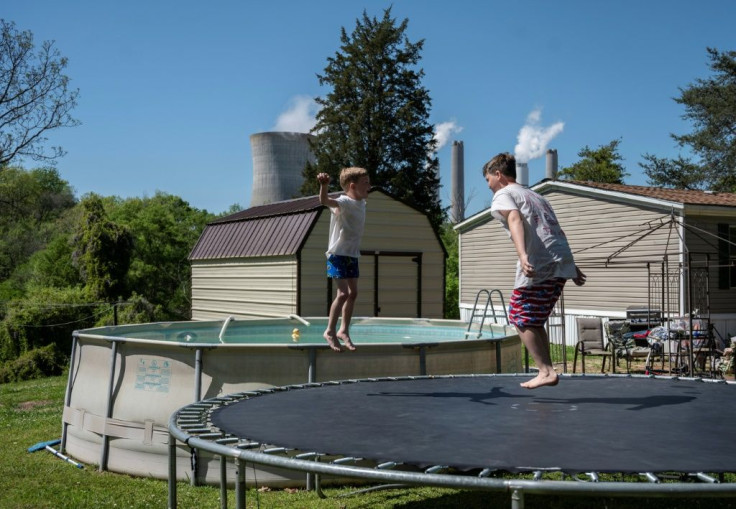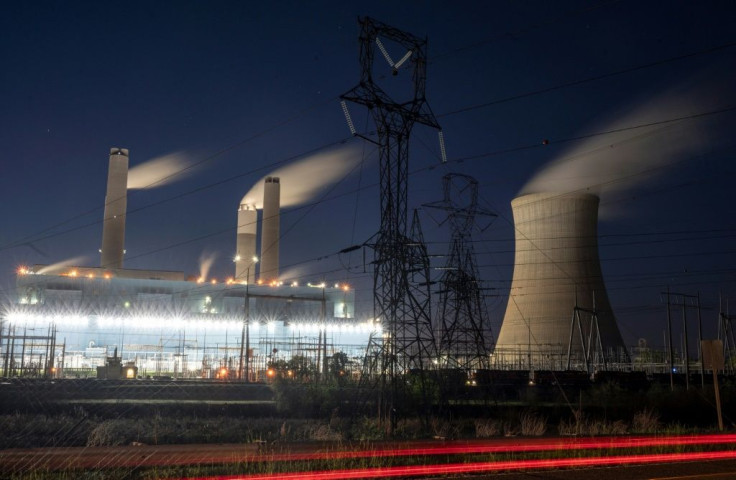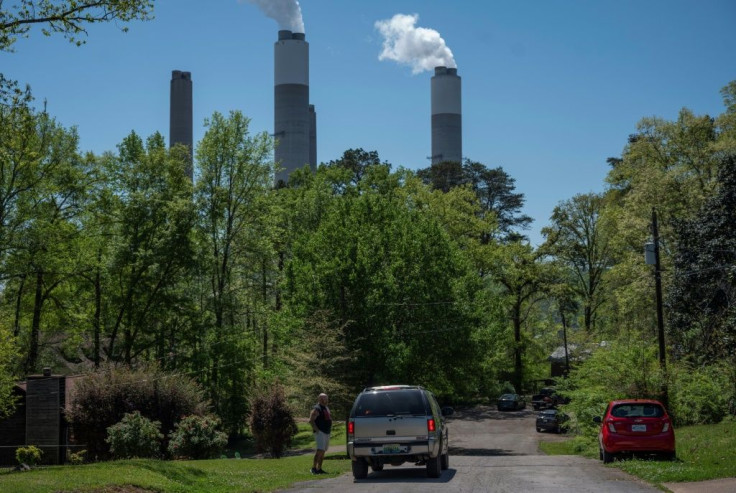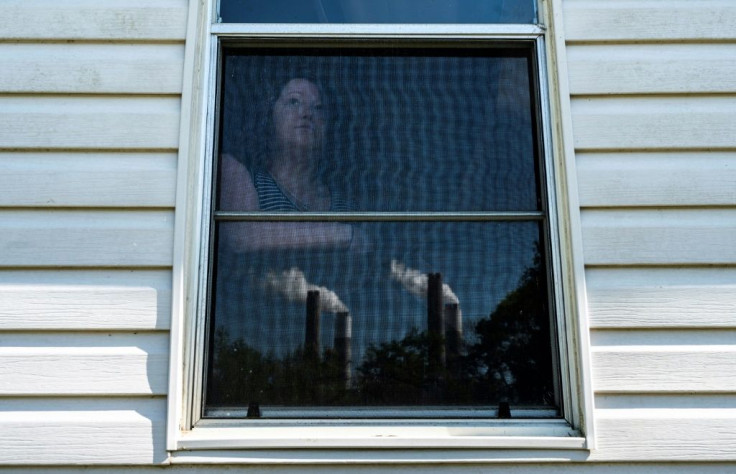'Torn': Living With Top US Greenhouse Gas Spewing Power Plant
The exhaust-belching smokestacks of America's most greenhouse gas-emitting power plant tower over Jennifer Chesser's neighborhood, but she'd likely fight to keep them from falling silent.
The James H. Miller Jr. site faces no immediate shutdown threat and has the backing of many locals because of the jobs it offers -- despite sending about as much planet warming carbon dioxide into the sky last year as 3.7 million cars.
"It's a double-edged sword for me," Chesser said of the coal-fired generator just northwest of Alabama's largest city Birmingham. "It's harming the planet but at the same time it helps us because it's what's making our living. So I'm torn."

Coal is her family's business -- she's the daughter of a sixth-generation miner and her husband works in the industry too -- so a blow to Miller would be one against her personally.
"We don't have any other options," Chesser, a 46-year-old homemaker, told AFP.
The plant highlights a key problem in counteracting climate change -- even for people who accept it is happening, the threat can be overshadowed by pressing daily needs.
That ongoing battle will bring together world leaders this week for a virtual summit as President Joe Biden works to revitalize a global effort left in chaos by his predecessor Donald Trump.

Out at the Miller plant, workers' cars line the parking lot at the sprawling site along the Locust Fork of the Black Warrior River, where coal arrives by rail cars and deceptively innocent-looking white exhaust pours into the air day and night.
The road that winds past the facility leads to a cluster of homes, one was rotting and abandoned with a dead tree in the front yard and a view of the stacks through its dirty kitchen window.

From that plant 18.8 million tons of heat-trapping carbon dioxide were released in 2020, making Miller the top emitter among US power plants, according to a February report by advocacy group Environmental Integrity Project. It has been a top source for years.
Alabama Power, which operates Miller, declined an interview request from AFP but emailed a statement saying the plant is "efficient" and produces more electricity than any other coal plant in the United States.
They also claimed to have "achieved significant carbon reductions -- 47 percent across our generation fleet from 2007-2020 -- and expect carbon emissions to be further reduced over time."
Though the United States remains the world's second top producer of carbon dioxide behind China, things are changing as the nation's reliance on coal power recedes.

The amount of electricity produced with coal in 2019 hit its lowest level in 42 years as natural gas and wind-power output jumped, according to the US Energy Information Administration.
Even as Trump pledged to end what he called the "war on coal" with government money and slashed regulations during his presidency, the pace of reduction in capacity was reportedly faster than under Barack Obama's environmentally-focused administration.
Biden has already sent clear signals of his intent to further move America away from fossil fuels.
"We need to be bold. So let me be clear: that includes helping revitalize the economies of coal, oil and gas and power plant communities," he said a week after taking office in January.
"We're never going to forget the men and women who dug the coal and built the nation."
They are nice-sounding words, but around the Miller plant it feels a bit late.
"When they built this plant they put out the word that it would bring growth to our area," said David Brasfield, 73, who worked four decades in the coal business and put up his house a few years before the plant moved in.
"It went the opposite way. The school closed in the early 1990s and since then the community is dying more," he said, but added he doesn't want the plant to shut down because of the jobs.
Yet lack of noisy opposition should not be confused with support, said Nelson Brooke, a spokesman for environmental group Black Warrior Riverkeeper.
"Being the second-largest employer in the state, Alabama Power has a long hand into many households and that makes it uncomfortable for people to speak out against them," Brooke said.
Patricia Hallmark, who worked on the plant's own clean up crew for years, said it's dirty, dangerous work. She'd shut the place down tomorrow.
"It's bad for the environment, it's bad for people working in the place," said 60-year-old Hallmark, who still lives about a mile from the plant and wakes up some days to a coating of ash on her car.
"It ain't worth (losing) your life over."
© Copyright AFP 2024. All rights reserved.





















